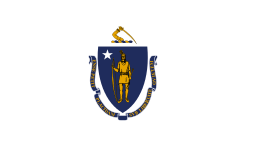Amasa Walker
| Amasa Walker | |
|---|---|
 | |
| Member of the U.S. House of Representatives from Massachusetts's 9th district | |
|
In office December 1, 1862 – March 3, 1863 | |
| Preceded by | Goldsmith Bailey |
| Succeeded by | William B. Washburn |
| Delegate to the Massachusetts Constitutional Convention of 1853 | |
|
In office May 4, 1853 – August 1, 1853 | |
| Massachusetts House of Representatives | |
|
In office January 1860 – January 1861 | |
| 11th Massachusetts Secretary of the Commonwealth | |
|
In office 1851–1853 | |
| Preceded by | William B. Calhoun |
| Succeeded by | Ephraim M. Wright |
| Massachusetts State Senate | |
|
In office January 1850 – January 1851 | |
| Massachusetts House of Representatives | |
|
In office January 1850 – January 1850 | |
| Personal details | |
| Born |
May 4, 1799 Woodstock, Connecticut |
| Died |
October 29, 1875 (aged 76) North Brookfield, Massachusetts |
| Political party | Jacksonian Democrats, Liberty Party 1844, Free Soil Party 1848, Republican 1856 |
| Signature |
|
Amasa Walker (May 4, 1799 Woodstock, Connecticut – October 29, 1875 North Brookfield, Massachusetts) was an American economist and United States Representative, and the father of Francis Amasa Walker.
Biography
He moved with his parents to North Brookfield, Massachusetts, and attended the district school. In 1814 he entered commercial life, and in 1820 formed a partnership with Allen Newell in North Brookfield, but three years later withdrew to become the agent of the Methuen Manufacturing Company. In 1825 he formed the firm of Carleton and Walker, of Boston, with Charles G. Carleton, but in 1827 he went into business independently.
He was a delegate to the 1836 Democratic National Convention. In 1839, he became president of the Boston Temperance Society, the first total abstinence association in that city, and in 1839 he advocated a continuous railway between Boston and the Mississippi River. In 1840 he retired from commercial life and went into academia.
In 1842–1848 he lectured on political economy at Oberlin College, in 1853–1860 he was an examiner on political economy at Harvard, and in 1859–1869 lecturer on political economy at Amherst College. The degree of LL.D. was conferred on him by Amherst in 1867.
He was a frequent contributor to periodical literature, especially on financial subjects. His principal work, Science of Wealth, a Manual of Political Economy, was published in 1866. Other works were Nature and Uses of Money and Mixed Currency (Boston, 1857) and, with William B. Calhoun and Charles L. Flint, Transactions of the Agricultural Societies of Massachusetts (7 vols., 1848–1854). In 1857 he began the publication of a series of articles on political economy in Hunt's Merchant's Magazine.
He was active in the anti-slavery movement, and in 1848 he was one of the founders of the Free Soil Party. Walker served in the Massachusetts House of Representatives in 1849 and 1860, in the Massachusetts State Senate in 1850, as Massachusetts Secretary of the Commonwealth 1851–1853, and in the United States House of Representatives 1862–1863, where he was elected as a Republican to fill the vacancy caused by the death of Goldsmith Bailey.
In 1853 he was chosen a member of the convention for revising the state constitution, becoming the chairman of the committee on suffrage. In 1860 he was chosen a member of the electoral college of Massachusetts, and cast his ballot for Abraham Lincoln.
Walker was a delegate to the first International Peace Congress in London of 1843, and he served at the Paris Congress in 1849.
Walker died in North Brookfield on October 29, 1875. His interment was in Maple Street Cemetery.
Books
- The Science of Wealth: A Manual of Political Economy. Embracing the Laws of Trade, Currency, and Finance, Boston, Mass.: Little, Brown & Co. (1866).
Notes
References
- United States Congress. "Amasa Walker (id: W000045)". Biographical Directory of the United States Congress.
-
 Gilman, D. C.; Thurston, H. T.; Colby, F. M., eds. (1905). "Walker, Amasa". New International Encyclopedia (1st ed.). New York: Dodd, Mead.
Gilman, D. C.; Thurston, H. T.; Colby, F. M., eds. (1905). "Walker, Amasa". New International Encyclopedia (1st ed.). New York: Dodd, Mead.  This article incorporates text from a publication now in the public domain: Wilson, James Grant; Fiske, John, eds. (1900). "Walker, Amasa". Appletons' Cyclopædia of American Biography. New York: D. Appleton.
This article incorporates text from a publication now in the public domain: Wilson, James Grant; Fiske, John, eds. (1900). "Walker, Amasa". Appletons' Cyclopædia of American Biography. New York: D. Appleton.
External links
-
 "Walker, Amasa". The American Cyclopædia. 1879.
"Walker, Amasa". The American Cyclopædia. 1879.
| Political offices | ||
|---|---|---|
| Preceded by William B. Calhoun |
11th Massachusetts Secretary of the Commonwealth 1851–1853 |
Succeeded by Ephraim M. Wright |
| United States House of Representatives | ||
| Preceded by Goldsmith Bailey |
Member of the U.S. House of Representatives from Massachusetts's 9th congressional district 1862–1863 |
Succeeded by William B. Washburn |

